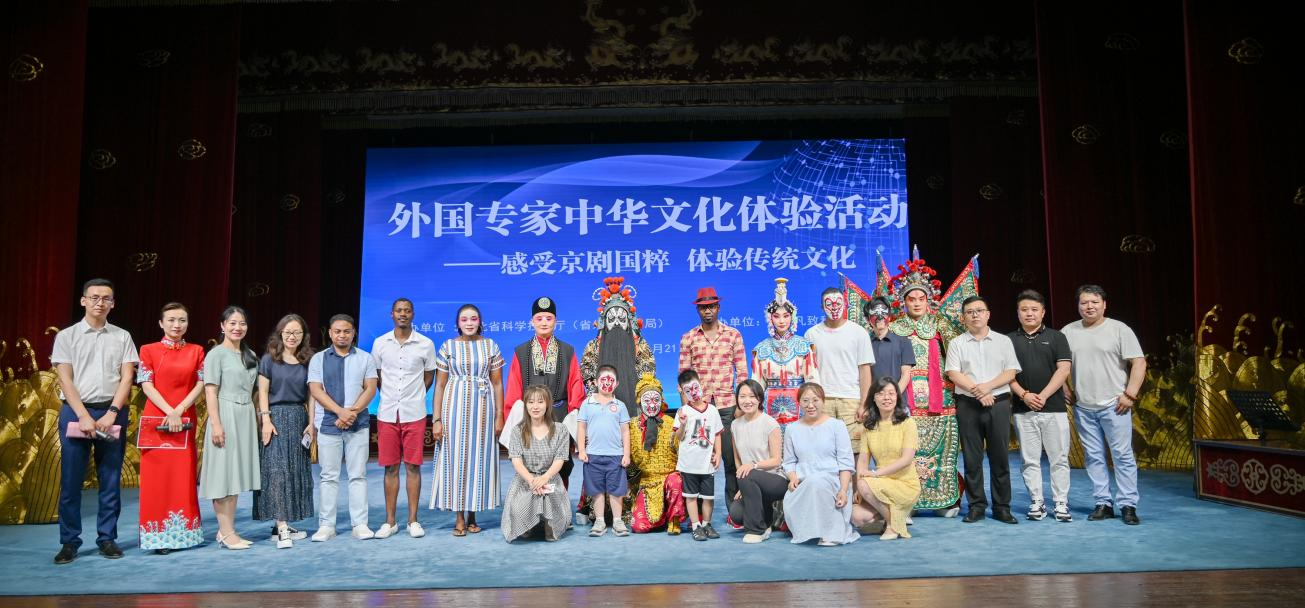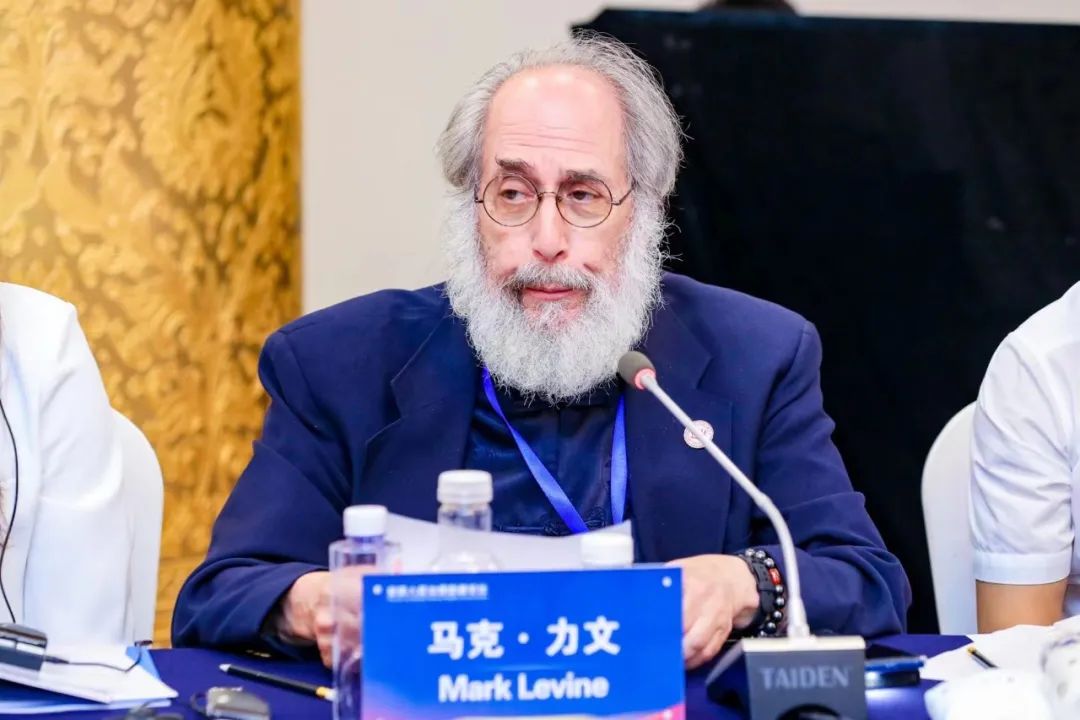On April 21, 2023, under the mechanism of the China UK Engineering Technology Steering Committee (hereinafter referred to as the "Steering Committee"), the "2023 Annual Activity of the China UK Engineering Technology Cooperation Steering Committee" was held in the form of an online video conference to continuously promote China UK engineering technology cooperation and accelerate the achievement of the "dual carbon" and net zero goals. Li Xiaohong, President of the Chinese Academy of Engineering, and Sir Jim MacDonald, President of the Royal Academy of Engineering, attended and delivered speeches as the chairmen of both China and the UK of the Steering Committee. The event was presided over by Wang Chen, Vice President of the Chinese Academy of Engineering.
Li Xiaohong stated in her speech that since the establishment of the committee, a series of discussions have been conducted on topics such as offshore wind power, and the results have been fruitful. The next step is for the committee to jointly explore carbon capture, utilization, and storage technology (CCUS) and industrial research and development under the background of the "dual carbon" goal, seek solutions, and promote high-quality economic and social development. The topic selection is at the right time, and he proposes three suggestions for this. One is to establish a mutual visit mechanism, conduct two-way on-site research, summarize their respective advantages, gather consensus, and jointly create a new situation of scientific and technological cooperation. Secondly, in the face of key challenges in the development of the global CCUS industry, we will promote joint research, address key commonalities and pain points, promote large-scale application demonstrations around carbon dioxide coupled energy conversion and utilization, offshore storage, carbon capture and transformation, and create a new pattern of technological innovation. The third is to further strengthen talent exchange and joint training between China and the UK, explore the establishment of a long-term exchange mechanism for young scholars, continuously provide talent support to help achieve the "dual carbon" goal, and jointly draw a new blueprint for the future development of engineering and technology.
Sir Jim McDonald expressed in his speech that he is pleased to see the increasingly close cooperation in decarbonization engineering and technology under the framework of the steering committee. The framework of the steering committee has become an effective platform for the UK and China to strengthen engineering and technological cooperation and jointly address global climate challenges. The two countries are in a leading position in finding solutions. Through cooperation, we can integrate the existing rich technical knowledge and engineering professional domain knowledge, and set an example for other regions in the world. There is still enormous potential within the framework of the steering committee to further promote cooperation in areas such as offshore wind power, CCUS, building environment, power grid, and hydrogen energy. He believes that the engineering institutes of the UK and China are not only technical think tanks, but also systematic Thinker. In addition to developing technology, it can also provide suggestions for government departments in terms of deployment, investment strategies, and coordinate and promote various departments to achieve the ultimate goal of net zero emissions through the most efficient path. A major highlight of the cooperation framework of the steering committee is to build bridges between government departments and institutions, as well as outstanding engineers and researchers. We look forward to further significant contributions to addressing climate challenges through our cooperation.
Academician Rao Hong, Chief Scientist of China Southern Power Grid Corporation, and Academician Deborah Graves, Professor of Marine Engineering at the School of Engineering, Computing, and Mathematics at the University of Plymouth in the UK, respectively reviewed the situation of the "Sino UK Engineering Technology Cooperation Decarbonization Technology Symposium - Offshore Wind Power Special Session" held last year and proposed suggestions for further cooperation. Focusing on the proposed topics of this year's symposium, Academician Chen Jianfeng, Secretary General of the Chinese Academy of Engineering, introduced the development status, existing problems, cooperation foundation and future cooperation ideas of China UK CCUS in his speech. Jon Gibbons, a professor at the University of Sheffield and director of the CCS Research Center in the UK, introduced the layout of CCUS policy research in the UK, the status of UK China CCUS cooperation, and potential areas for further cooperation.
Keith Bell, an expert in the electricity industry at the UK Climate Change Commission and co director of the UK Energy Research Center, Huang Jing, director of the China Agenda 21 Management Center, Niere Shah, vice chairman of the Net Zero Working Group at the UK National Engineering Policy Center, Claire Howard, manager of the UK Industrial Decarbonization Research and Innovation Center, and Daniel Brooke, director of the UK National Research and Innovation Agency's China office Zhang Lei, a special researcher at Beijing University of Technology, and other attending representatives shared their views, opinions, and suggestions on cooperation and discussion plans under the topics of offshore wind power and CCUS during the subsequent discussion segment.
Qin Tao, Deputy Director of the China Association for International Talent Exchange, Campbell Booth, Deputy Dean of the Engineering Research Institute at the University of Clyde, Lin Fan, Advisor to China Affairs at the University of Clyde, and Academician Kang Jian, Professor of Acoustics and Scenery at University College London, respectively, have strengthened the exchange and training of engineering and technical personnel, especially young engineers, between China and the UK within the framework of the steering committee, Other cooperation topics such as professional discussions and on-site exchanges in the field of low-carbon architecture were introduced and exchanged.
The China UK Engineering Technology Cooperation Steering Committee was officially established in April 2022, and holds an annual meeting or event of the committee to review past cooperation and determine the next steps of cooperation. Representatives from relevant Chinese departments such as the Chinese Academy of Engineering, the Department of Foreign Affairs and Cooperation of the Ministry of Science and Technology, the China Agenda 21 Management Center, the China International Talent Exchange Association, the British National Research and Innovation Agency, the British Embassy in China, the Royal Academy of Engineering, the British CCS Research Center, the British Industrial Decarbonization Research and Innovation Center, the British National Engineering Policy Center Net Zero Working Group and other departments attended the event.
(Source: China International Talent Exchange Center)









 冀公网安备 13010402002331号
冀公网安备 13010402002331号